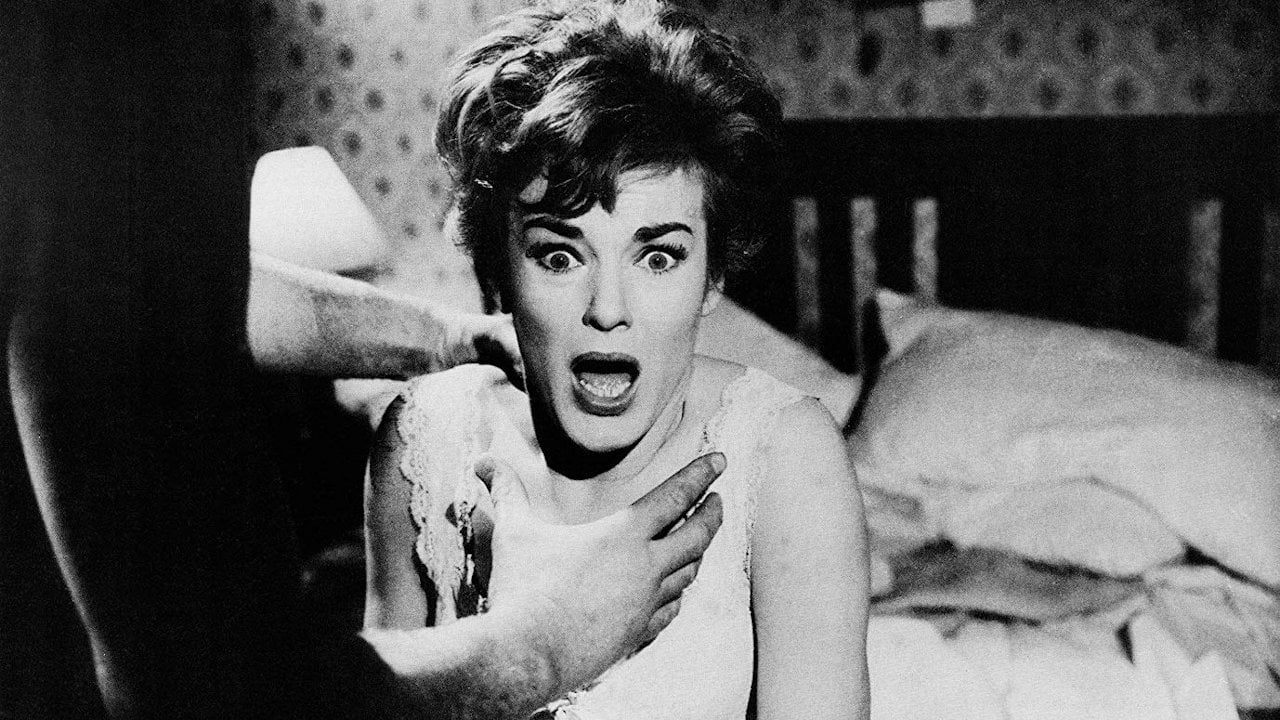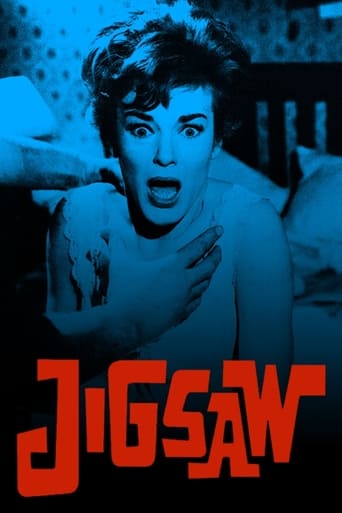Claysaba
Excellent, Without a doubt!!
Humaira Grant
It’s not bad or unwatchable but despite the amplitude of the spectacle, the end result is underwhelming.
Janis
One of the most extraordinary films you will see this year. Take that as you want.
Phillipa
Strong acting helps the film overcome an uncertain premise and create characters that hold our attention absolutely.
trimmerb1234
But no reviewer gives this film anything other than a deserved high rating and most identify much of what makes it so watchable.I think it is no coincidence that the director is also the screenwriter. It means that dialogue can be quite spare at times because it will be visuals - glances between individuals - which tell the story. And this draws in the viewer - "Are you thinking what I'm thinking?" says the detective to his colleague - no reply because he (and the viewer) are thinking the same. Nothing is over-played. A suspect is sitting in a room, with no announcement a detective brings in a witness, briefly introduces him to the suspect. Neither show any interest in the other. The detective and witness leave. Nothing is said but it has wordlessly made clear that a hopeful line of enquiry has suddenly turned into a dead end.And it may be no coincidence that veteran director Val Guest was formerly an actor. A screenwriter is concerned to tell a story - and the dialogue is divvied up between the cast. But perhaps most deadly of all is mere padding dialogue: "Cup of tea? Milk? How many sugars?" An actor in contrast is firstly playing a character so dialogue is as much sketching the character as advancing the plot. British film "Calculated Risk" 1963 is another example of very ordinary sounding dialogue lifting a production where the screenwriter was also an actor - and with character comes relationships. "what's my motivation" is the question always kept in mind and ensures the cast's focus throughout. Of course the top name screenwriters - the Alan Platers - come close. But here characters can almost be Dickensian with instantly recognisable ways of speaking "I've got a photographic memory" repeatedly says a minor but important witness. Realistic people who are excited and so gush irrelevancies that they don't stop when ushered out of the room, but audibly continue with the police constable waiting outside.Pace - I can see some of how this comes about. One thing is elimination of redundant film - an address might come over the police radio - cut to police car stopping outside the address. Yet there is no sense of hurry. Everything is given the necessary time.It's a measure of the film's qualities that there is such agreement about its merits - nobody fails to understand and appreciate it. Was it influenced by earlier American police procedurals? Has it been a model and inspiration till this day for British police dramas? I think it is yes to both. I'd suggest Dragnet for the first but so domesticated that the link is more tone than anything. For the second, decreasingly so as swagger, gloss and style come to predominate. And swagger, gloss and style are absent here.
Wizard-8
British actor Michael Caine once complained that many of the movies his country made were not "moving pictures", and instead were often more or less "illustrated radio" productions. To some degree, this applies to this movie. "Jigsaw" is a very talky movie, with no real action at any point, with the results being a script that wouldn't need much change to make it suitable for the radio. And as a result, the movie is sometimes dry enough that viewers may really be wishing for a little excitement.However, despite the overly talky script, the movie still has some interest. It does accurately illustrate that murder investigations in real life are usually not exciting and involve a lot of hard and boring work. The various ways the police in the movie investigate without modern day techniques such as computers and DNA are interesting at times. And the movie's frankness concerning pre- marital sex - which you wouldn't get in a Hollywood movie of this period - is interesting. Viewers who are in a patient mood will probably find this movie interesting enough.
Robert J. Maxwell
It's Brighton in the early 60s. A lonely house. A tarty blond gets out of bed and informs her boyfriend that she's pregnant so they'll have to be married. This is a big mistake on her part. The boyfriend evidently doesn't want to build a home because he kills her, chops her up, and stashes her in a trunk in the garage -- most of her, anyway.We never do see the killer and thereby hangs a tail. The renter of the house, Brian Oulton, is all upset because the occupants are behind in their payments so the police are called in. They are Jack Warner and Ronald Lewis. At first, knowing only that the "Campbells" skipped on the rent, they poke around the house in a leisurely fashion, examining the furniture, the furnace, and so on, all quite disinterestedly, despite being nettled by Oulton, the impatient owner. Once the body is uncovered, the police shift into high gear and the film turns into a nifty policier.The director, Val Guest, also wrote the screenplay. He doesn't waste a moment. There is occasional overlapping dialog, some brisk but friendly banter, orders are casually snapped out and followed at once. The police have no names, neither the victim nor the presumed killer, and begin visiting neighbors and shops, trying to piece together enough independent data to complete a picture of what happened. I presume that's where the title, "Jigsaw", comes from, and not from the fact that the girl's body was so gruesomely mishandled.The story itself is too complicated to describe in any detail. Most of these detective stories are. There are many red herrings before the final capture, but the movie ends on a cute note. The killer's alibi rests on an excuse that it was an accident. The poor girl tripped and bashed her head in. In a panic, the killer ran out and bought the instruments that sawed her up. But that was after she was already dead, a Monday night. The alibi is disproved in the last shot when Warner points to a poster advertising a musical performance featuring Beethoven's Piano Concerto, Schubert's Fourth Symphony, and something by Malcolm Arnold. The performance was on Monday night -- Easter -- so all the hardware shops were closed. He must have bought the instruments earlier, so the murder was deliberate. The gag is Malcolm Arnold's name. He scored every British movie ever made between 1900 and 2014, and all his scores were conducted and recorded by Muir Matheson.It's a little long but thoroughly enjoyable for what it is.
ted puff
Now I knew the story of this film, because I'd read the novel it was based on, so the unmasking of the villain was no surprise. (And mindful of 'spoilers' I'm not going to say who it was here.) But what really makes this ingenious detective film stand out, is its brilliant script by Val Guest shifting the setting from Massachusets to Brighton, it is as tight as a drum, plays absolutely fair with the audience, and is a model of crispness and authority. The actors respond in kind, all performances are superb, but I must single out the ever reliable Michael Goodliffe, so good in everything he appears in as Clyde Burchard.The setting, a seedy Brighton of 1962 is evocative, you feel the undercurrent of crime in every shot. Nothing is overlooked to hold you gripped in your chair until the denoument. Val Guest made another classic the same year, the sci-fi 'The Day the Earth Caught Fire' a picture of Fleet Street. These two films stand as his monument. Two of the best films to come out of Britain in the post war period.

